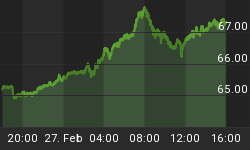Having tried obscuring the scope of "Project Dragonfly" in communications with both the public and its own employees - lies that were laid bare by an embarrassing series leaks to the Intercept - Google CEO Sundar Pichai has apparently calculated that it would be better for the company's public image if he "came clean" about Google's plans for returning to China, a market it abandoned in 2010 after repeatedly clashing with the Chinese Government over its censorship policies.
And so it was that, two weeks after Vice President Mike Pence demanded that the company kill "Project Dragonfly", Google CEO Sundar Pichai decided that now would be a reasonable time to publicly acknowledge the project for the first time. However, what Pichai tried to spin as "leveling" with his audience was, in reality, anything but: Despite reports that "Dragonfly" is "larger than many projects at Google" and employs some 300 full-time engineers, Pichai insisted on describing it as an "experiment" that was in its "early stages" of development (details from a leaked internal memo have suggested that "Dragonfly" could be up and running within the next six to nine months).
For readers who missed the damning series of leaks sketching out the scope of the project, "Dragonfly" is intended to be a censored search engine that would block results for queries that the Chinese government considered sensitive, like the Mandarin phrases for "human rights" and "student protest". It would also require Chinese users to log in with their credentials before searches can be run, ensuring that the Communist Party can log and examine a comprehensive record of search activity.
But while Pichai acknowledged that "Dragonfly" would censor some search terms, ultimately, Google would be able to serve well over "99%" of queries. While it's unclear how Pichai arrived at this metric, we imagine there aren't too many Chinese citizens sitting at their terminals Googling "Nobel Peace Prize" over and over again... Related: Where Does The True Value Of Gold Lie?
"We wanted to learn what it would look like if Google were in China, so that's what we built internally," Pichai said. "If Google would operate in China, what would it look like? What queries would we be able to serve? It turns out we'd be able to serve well over 99 percent of queries and there are many, many areas where we would provide information better than what's available."
In a subtle dig at Baidu, one of Google's largest domestic competitors, Pichai said "today people either get fake cancer treatments or they actually get useful information," an apparent reference to a 2016 case where Baidu was found to have "distorted" information found through its portal about ineffective "medical treatments".
Given that the mainland market harbors hundreds of middle-class users, whose personal data Google and its tech rivals are eager to exploit for profits, Pichai said Google was obligated to "think hard" about the problem of returning to China, and that US companies shouldn't scuttle what could be an enormously profitable initiative just because it would require making a few ethically dubious concessions to a totalitarian state.
As Silicon Valley titans often do, Pichai managed to cloak his words in a sunny moral relativism - Google is a business after all, and no imperative more greatly influences its decision-making than the quest for "the next billion users". But as Matt Stoller pointed out on twitter, the straw-men arguments addressed by Pichai during his talk missed the point entirely.
By Zerohedge
More Top Reads From Safehaven.com:
















